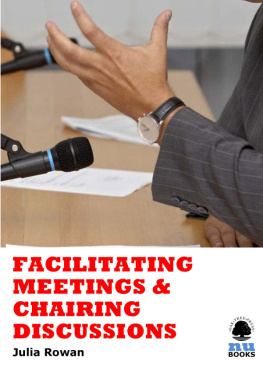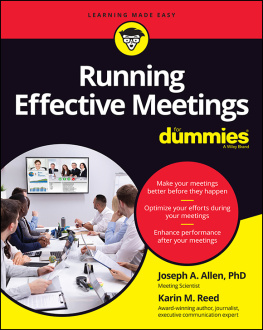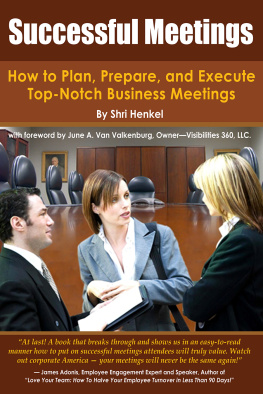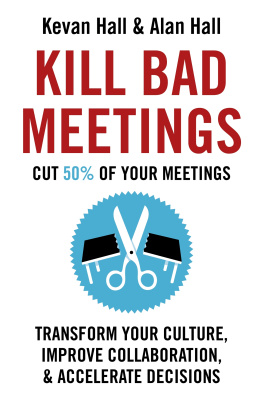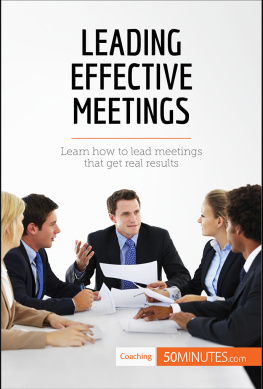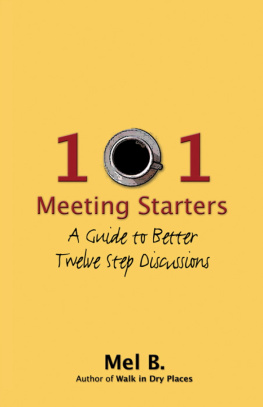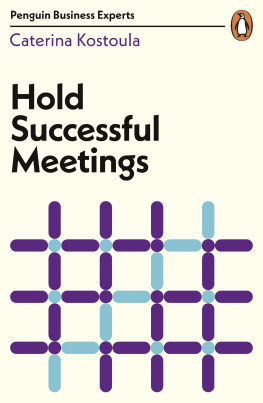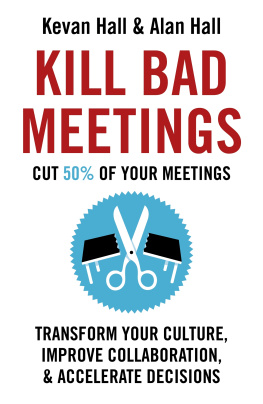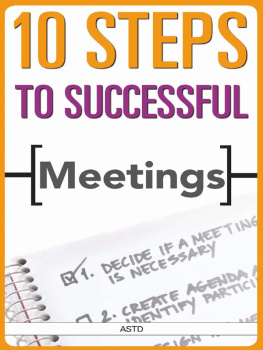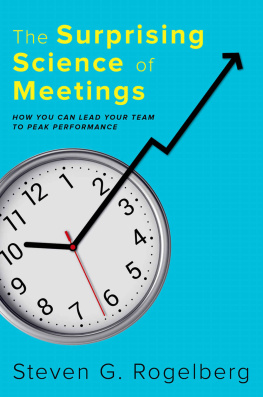REFERENCES & FURTHER READING
Barker, A. (2002). How to Manage Meetings, London: The Sunday Times/ Kogan Page [Clear layout and structure; pragmatic how to do it approach; dip in and out.]
Dunne, P. (1997). Running Board Meetings, London: Kogan Page [Easy to read, light-hearted and with plenty of humour but some serious points.]
Forsyth, P. (1994) The Meetings Pocketbook, Melrose Press [Quick read; full of interesting ideas and tips.]
Rae, L. (1996). Lets Have a Meeting, McGraw-Hill.
Tannenbaum, R. and Schmidt, W. H. (1958). How to Choose a Leadership Pattern, Harvard Business Review, 1958, 3, pp. 95-101.
Tropman, J. E. (1996). Making Meetings Work Achieving High Quality Group Decisions, Thousand Oaks, CA: Sage Publications [More in-depth; needs reading (not dipping in).]
ABOUT THE AUTHOR
Julia Rowan holds a number of business and training qualifications. Working in Ireland and internationally, she delivers training courses in a variety of management effectiveness areas including time management, presentation skills and performance management.
ABOUT THE EDITORS
At the time of original print publication, Marion OConnor, John Cullen and John Mangan are Management Researcher, Senior Management Researcher and Director of Research respectively at IMIs Centre for Management Research and the editors of the IMI Handbook of Management, on which this ebook is based.
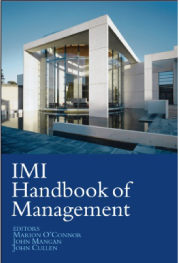
Facilitating Meetings & Chairing Discussions is extracted from the IMI Handbook of Management (ISBNs 978-1-86076-292-5 hardback, 978-1-86076-293-2 paperback), edited by Marion OConnor, John Cullen and John Mangan, and published by Oak Tree Press, www.oaktreepress.com, in association with IMI).
The titles in this ebook series include:
- Managing Your Time.
- Getting Things Done.
- Managing Stress & Your Health.
- Planning Your Career.
- Motivating Others.
- Building Effective Teams.
- Negotiating Effectively.
- Facilitating Meetings & Chairing Discussions.
- Managing People.
- Managing Customers.
- Presentation & Communication Skills.
- Internal Communications.
- Assertiveness.
- Influencing Others.
- Gathering Business Information.
- Business Writing.
- Managing in Changing Times.
- Managing Outsourcing.
- Doing Business Strategy.
- Leadership.
ABOUT OAK TREE PRESS
Oak Tree Press develops and delivers information, advice and resources for entrepreneurs and managers. It is Irelands leading business book publisher, with an unrivalled reputation for quality titles across business, management, HR, law, marketing and enterprise topics.
In addition, through its founder and managing director, Brian OKane, Oak Tree Press occupies a unique position in start-up and small business support in Ireland through its standard-setting titles, as well training courses, mentoring and advisory services. Oak Tree Press is comfortable across a range of communication media print, web and training, focusing always on the effective communication of business information.
Oak Tree Press, 19 Rutland Street, Cork, Ireland.
T: + 353 21 4313855 F: + 353 21 4313496.
E:.

KEY LEARNING OBJECTIVES
- Diagnose the problems at meetings you chair or attend
- Identify what to do at each stage of the meeting life-cycle
- Clarify objectives that direct the meeting
- Use ground rules to facilitate better participation
- Select an appropriate chairing style
- Understand how group dynamics can help, or hinder, group performance.
Most managers spend between 25% and 75% of their time in meetings and they estimate that 60% of this time is wasted. So what puts meetings at the bottom of the corporate activity popularity stakes and, when the success of meetings depends on all of the participants, is it fair to place responsibility for the success of the meeting in the chairpersons hands? Yes, it is!
From the formal meeting with an agenda to the What do we need to discuss? facilitated discussion, this eBook looks at what it takes to run fantastic meetings and also includes some ideas that might help when youre merely asked to participate.
WHY BOTHER WITH MEETINGS?
Good question. Most of the readers who have turned to this chapter will know exactly why we need to bother. For those of you that dont know, lets start with some research: managers spend between 25% and 75% of their time at meetings. And the more senior you become, generally, the more meetings you attend. This means, of course, more preparation time, more follow-up time and more time spent sitting at meetings.
With managers spending so much time at meetings, it would be reasonable to expect that the practice makes perfect principle comes into play. Unfortunately, it does not. Managers estimate, on average, that 60% of the time they spend at meetings is wasted.
How does that apply to the manager working a 40-hour week?
- Managers spending 10 hours (25% of their time) at meetings, feel they have wasted six of those hours
- Managers spending 20 hours (50% of their time) at meetings, feel they have wasted 12 of these hours, and
- Managers spending 30 hours (75% of their time) at meetings, feel they have wasted 18 of these hours.
So apart from the waste of salary which must run into billions of euro there is the waste of energy, the growth of cynicism and the loss of morale, and sometimes even, the acceptance that this is just the way things are done around here so Id better join in.
What goes wrong at meetings?
Lots of things go wrong:
- Discussions that seem to go nowhere
- Unclear decisions that nobody follows up on
- Minutes (if there are any) arriving 10 minutes before the next meeting begins
- The opinions (and voices) of a few people dominating
- No follow-up
- Annoyingly-detailed PowerPoint presentations, containing a whole load of stuff that everybody knows, and sending you to sleep before the interesting material is reached.
What can you do?
Transforming your meetings into fantastic meetings is quite straightforward, but not necessarily easy. The management of meetings can be divided into three phases:
- Planning fantastic meetings
- Running fantastic meetings
- Following-up on fantastic meetings.
PLANNING FANTASTIC MEETINGS

